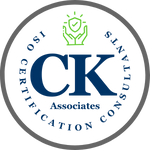Unlocking the Potential of ISO/IEC 42001: The Role of Consultants in Implementation
In today’s fast-paced digital landscape, organizations are adopting Artificial Intelligence (AI) to improve processes, decision-making, and customer experiences. However, this rapid adoption comes with risks—such as data privacy breaches, bias in algorithms, and lack of accountability in AI systems. The ISO/IEC 42001 standard has emerged as a critical framework for organizations using AI to address these challenges. But achieving compliance with this standard often requires the expertise of an experienced consultant.
Understanding ISO/IEC 42001: A Game-Changer for AI Management
The ISO/IEC 42001 standard provides a structured framework for organizations to design, develop, deploy, and maintain AI systems responsibly. The goal is to align AI management systems (AIMS) with existing management frameworks and regulatory requirements, ensuring responsible AI practices across industries.
Key aspects of the standard include:
- Governance and Accountability: Establishing protocols for managing risks associated with AI.
- Ethical AI Practices: Addressing biases in AI models and ensuring inclusivity.
- Compliance Assurance: Adhering to evolving laws and industry regulations.
- Risk and Opportunity Management: Identifying and mitigating potential risks of AI usage while leveraging its advantages.
Why Implement ISO/IEC 42001?
- Trust and Transparency: Demonstrates your organization’s commitment to ethical AI practices, building trust among customers and stakeholders.
- Market Advantage: Positions your business as a leader in responsible AI, giving you a competitive edge in the market.
- Regulatory Preparedness: Ensures compliance with global and regional data security and privacy laws.
- Operational Efficiency: Enhances AI system efficiency, reducing the risk of errors or breakdowns.
- Enhanced Risk Management: Equips organizations to foresee and mitigate potential AI risks.
Challenges Organizations Face During ISO/IEC 42001 Implementation
Implementing ISO/IEC 42001 requires significant resources, time, and expertise. Many organizations face the following obstacles:
- Complex Framework: Integrating ISO/IEC 42001 into existing management systems can be overwhelming.
- Lack of Technical Expertise: Few teams have the in-house capability to address both technical and procedural requirements.
- Evolving Compliance Requirements: Staying updated with frequent regulatory changes is difficult.
- Resource Constraints: Allocating internal resources for implementation can strain operations.
This is where expert consultants can make a difference.
The Role of Consultants in ISO/IEC 42001 Implementation
1. Strategic Roadmap Development
Consultants analyze your existing systems and create a clear implementation plan tailored to your organization. They ensure that the process aligns with business objectives and minimizes disruptions.
2. Risk Assessment and Mitigation
Certified consultants can identify potential risks—such as biases in algorithms, privacy concerns, or gaps in security—and devise mitigation strategies.
3. Training and Capacity Building
Consultants provide training to your team to foster a culture of compliance and accountability. They ensure your staff understands the requirements of ISO/IEC 42001.
4. Gap Analysis and Documentation
A thorough gap analysis is essential to identify the areas your organization must improve to meet the ISO/IEC 42001 standards. Consultants assist in documenting processes, which is a key component of ISO certification.
5. Audit Readiness
Consultants guide you through the pre-certification audit process, ensuring all necessary criteria are met before the official audit begins.
6. Continual Improvement
Post-certification, consultants help implement strategies for continual improvement, keeping your organization at the forefront of responsible AI practices.
Benefits of Partnering with a Consultant
- Time and Cost Efficiency: Expertise and clear processes accelerate certification.
- Tailored Approach: Consultants adapt the standard to fit your unique organizational needs.
- Audit Success: Ensures a smooth certification process with a higher likelihood of success.
- Ongoing Compliance Support: Provides updates and strategies for adhering to regulatory changes.
ISO/IEC 42001 Across Industries: Practical Applications
- Healthcare
- Mitigating risks in AI-powered diagnostics and treatment systems.
- Ensuring patient data privacy and ethical use of algorithms.
- Financial Services
- Addressing biases in AI-driven credit assessments.
- Aligning with global financial data security regulations.
- Retail and E-Commerce
- Ensuring responsible AI in personalized shopping experiences.
- Managing risks related to consumer data usage.
- Government and Defense
- Protecting sensitive information in AI-driven surveillance and analysis tools.
- Reducing ethical concerns with military-grade AI applications.
Choosing the Right Consultant: What to Look For
When selecting an ISO/IEC 42001 consultant, consider the following:
- Experience with ISO Standards: Proven expertise in implementing ISO management systems like ISO 9001, 27001, or 45001.
- AI Knowledge: A solid understanding of AI technologies and their associated risks.
- Global Compliance Expertise: Familiarity with international regulations affecting AI.
- Tailored Solutions: Ability to adapt the standard to your organization’s unique needs.
CK Associates: Your Trusted Partner in ISO/IEC 42001 Implementation
At CK Associates, we specialize in guiding organizations through the complexities of ISO/IEC 42001 implementation. Our team of expert consultants ensures that your AI systems are aligned with ethical practices, regulatory compliance, and business objectives. From initial gap analysis to certification audits, we partner with you every step of the way to ensure a seamless experience.
Contact us today to transform your AI management with ISO/IEC 42001 certification. Let’s unlock the potential of ethical, efficient, and compliant AI for your organization.
